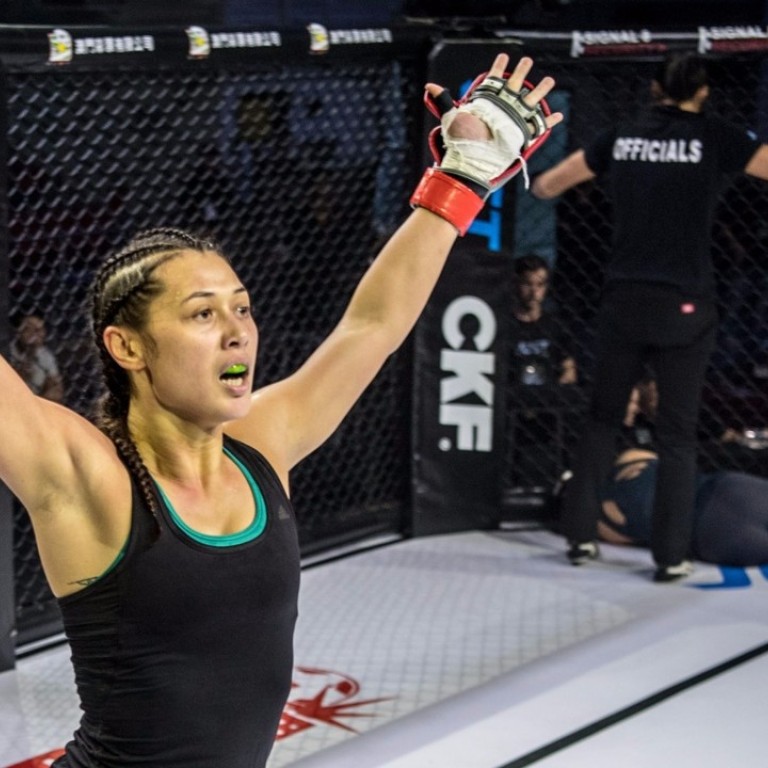
From modelling to MMA: Hong Kong-born Ashleigh Martin is breaking bones and mental health barriers
The unbeaten 26-year-old is gearing up for a third fight after battling the demons in her mind, as she looks to inspire other women to get into the cage
Hands raised and grinning from ear to ear, Hong Kong-born Ashleigh Martin was overcome with joy after winning her second professional mixed martial arts (MMA) fight last month. The 26-year-old (MMA record of 2-0) won at local event JUST CKF Hong Kong 2 via a devastating first-round technical knockout, later learning she had fractured her opponent’s orbital bone.
But it was not the performance in particular the former model was happy about, rather the culmination of events that eventually led to finding the one thing she had longed for: self-acceptance.
“There’s a lot of pressure to be skinny when you’re modelling,” said Martin, who joined her first fight gym three years ago. “I was in a bit of a dark spiral and got complacent with my fitness routine. I gained a lot of weight from anxiety, being depressed and not being able to work.”
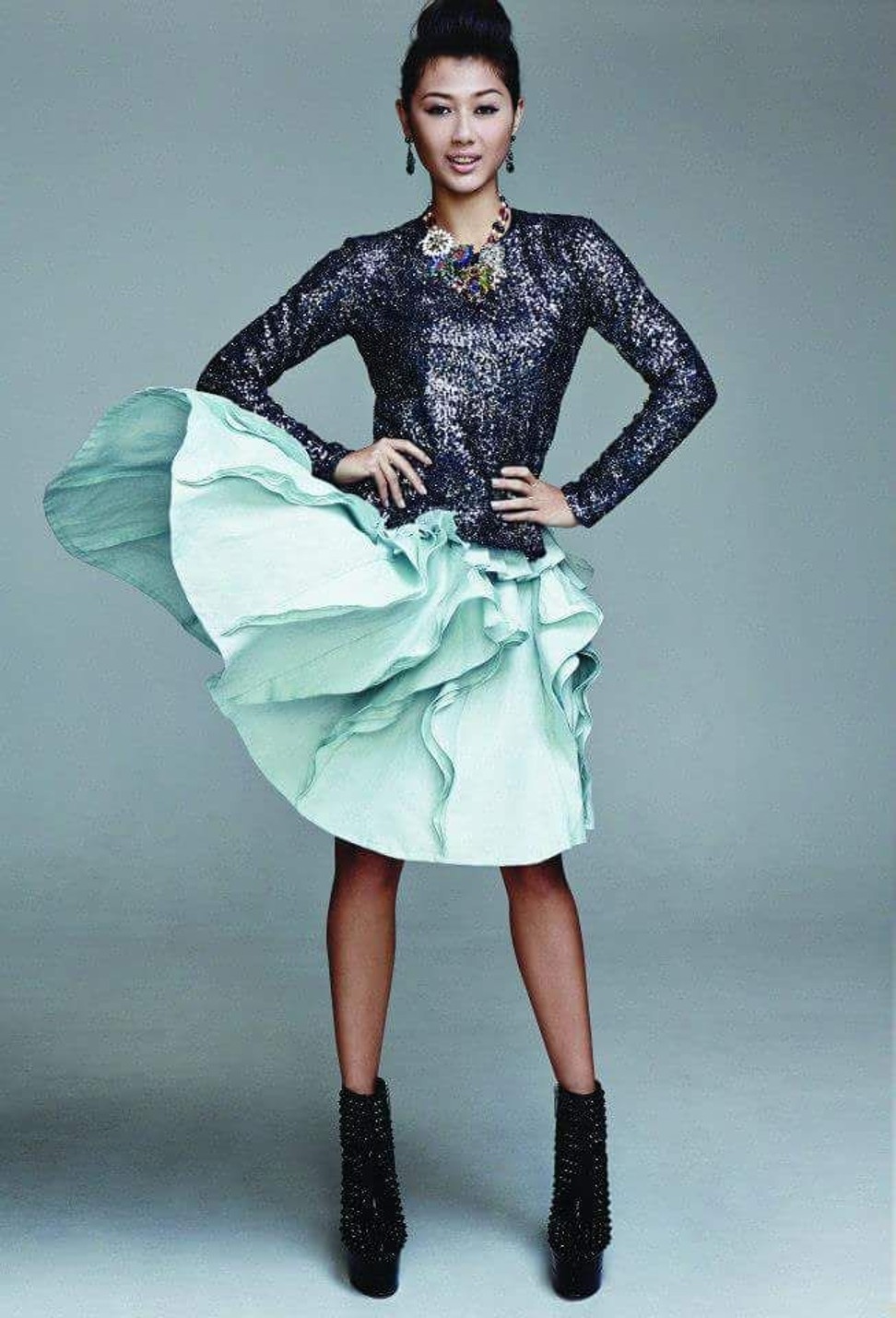
Body dysmorphic disorder (BDD) – which affects about one in 50 people in the world – is a mental disorder characterised by extreme concern over an aspect or perceived defect of one’s own body part or appearance.
The ‘flaw’may not be distinguishable to others, but some sufferers may feel so ashamed they develop social phobias, obsessive compulsive disorder or worse.
“It’s very easy to disregard [it] as a struggle because it’s a mental thing,” said Martin. “It’s so weird when I look at my modelling pictures – to see myself so skinny – but all I remember from that time was that I was never satisfied and how I needed to lose more weight.”
Martin, who is Singaporean-British by blood, needed a distraction from the “negative self talking” and “passive” lifestyle she had fallen into.
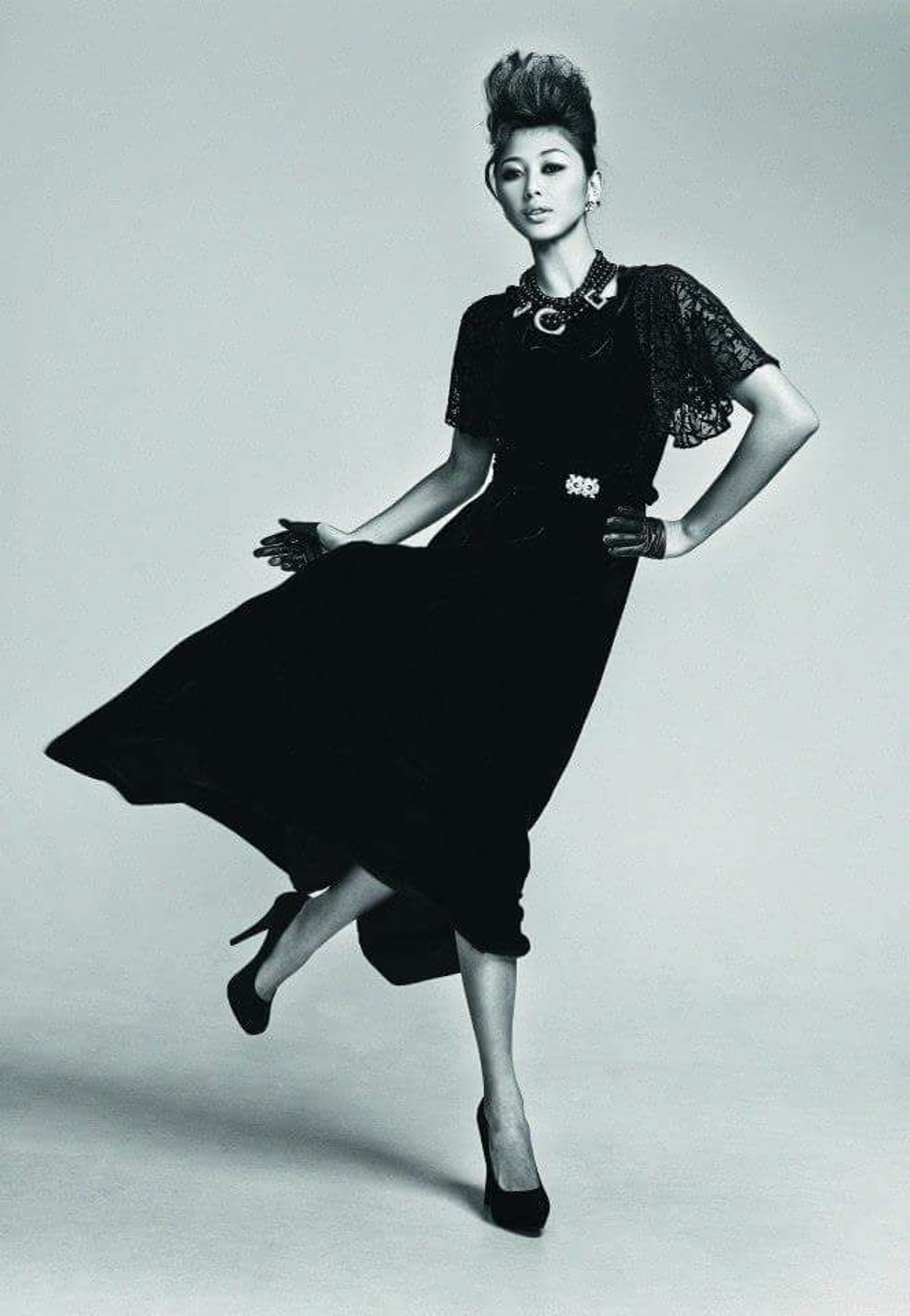
“I found that I was no longer competing, which was something I loved to do,” she said. “I joined a gym and got into MMA not because I thought I was fat, but for the constant seeking of new achievements. Knowing that improvement is inevitable with hard work, I found happiness.”
On top of picking up boxing, Muay Thai and jiu-jitsu fundamentals, Martin also learned to endure being the only female in the gym. She said that although the men did not treat her much differently on the mats, they were mindful of managing emotions.
“I’m no stranger to crying in the gym,” Martin said. “It’s nothing against anyone or anything, it’s that I want to go hard but I just physically can’t. They understand that and let me stop until I’m ready to go again.”
And once Martin expressed her intentions to fight her first fight over a year ago, coach Quinton Arendse and Versus Gym teammates were raring to help her become one of Hong Kong’s most promising female fighters.
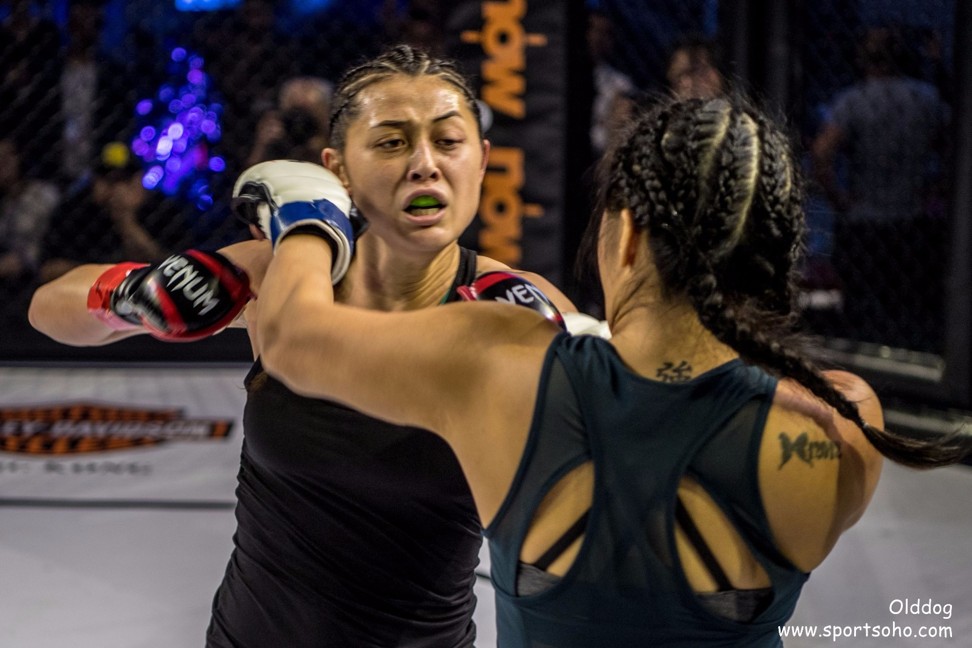
“It’s just me and the guys looking out for each other,” she said. “I was knocked down twice in training but it wasn’t ever malicious … except for when we were training leg kicks! I couldn’t walk for a week during [fight] camp because it hurt so much, but I wouldn’t have learned any other way.
“The way the guys constantly push you, you sort of get slimmer and slimmer but you don’t even think about losing weight any more. You think about how you’re going to get the choke or improve a certain movement.
“It’s self-empowering and I felt that was missing in my life. Once you apply the mentality of going with the flow even if you don’t know what you’re doing – which is what you have to do in jiu-jitsu sometimes – everything starts to fall in place.”

Now Martin looks to sharpen her technical abilities before stepping into the ring for the third time.
She has two long-term agendas: getting more girls in the game and encouraging those struggling with similar disorders to find the right outlet for them.
“I’ve been lulling over what I can do to get more women involved,” said Martin, who also works full-time for local promotion Just MMA.
“I’ve always been one girl among a bunch of guys but that doesn’t make me any less than them. You define your own destiny, not your gender.
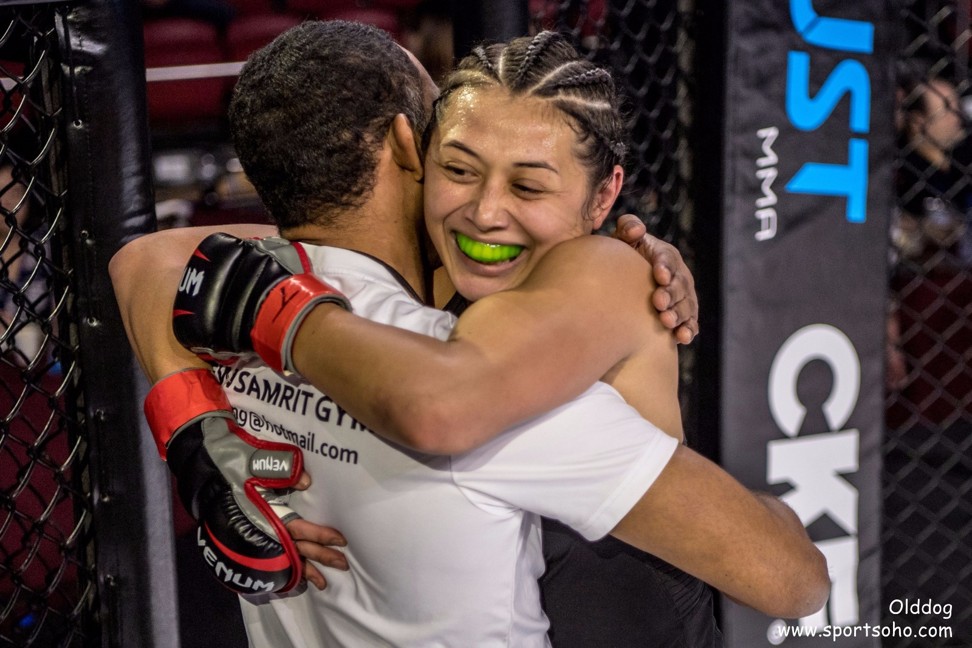
“But it is genuinely hard to convince people that preparing not to get hit in the face is good for you.
“I had two women come up to me after my fight saying it was the first time they had been to an MMA event but they’d never felt so empowered before.
“There were even parents with young daughters saying ‘please can you talk to my girl and show her that there are strong girls out there’. It was really lovely.”
“I’m not a victim of BDD,” added Martin. “It’s healthy to want to better yourself. Everyone looks in the mirror and wants to work towards something better. It’s how you stay mindful and come to terms with what you have and how to go from there.
“That feeling of being helpless and useless – that’s how I felt with the weight and that’s what martial arts is like at the start. If you’re trying to get out of it and think it’s going to be easy, you’ve got another thing coming.”

